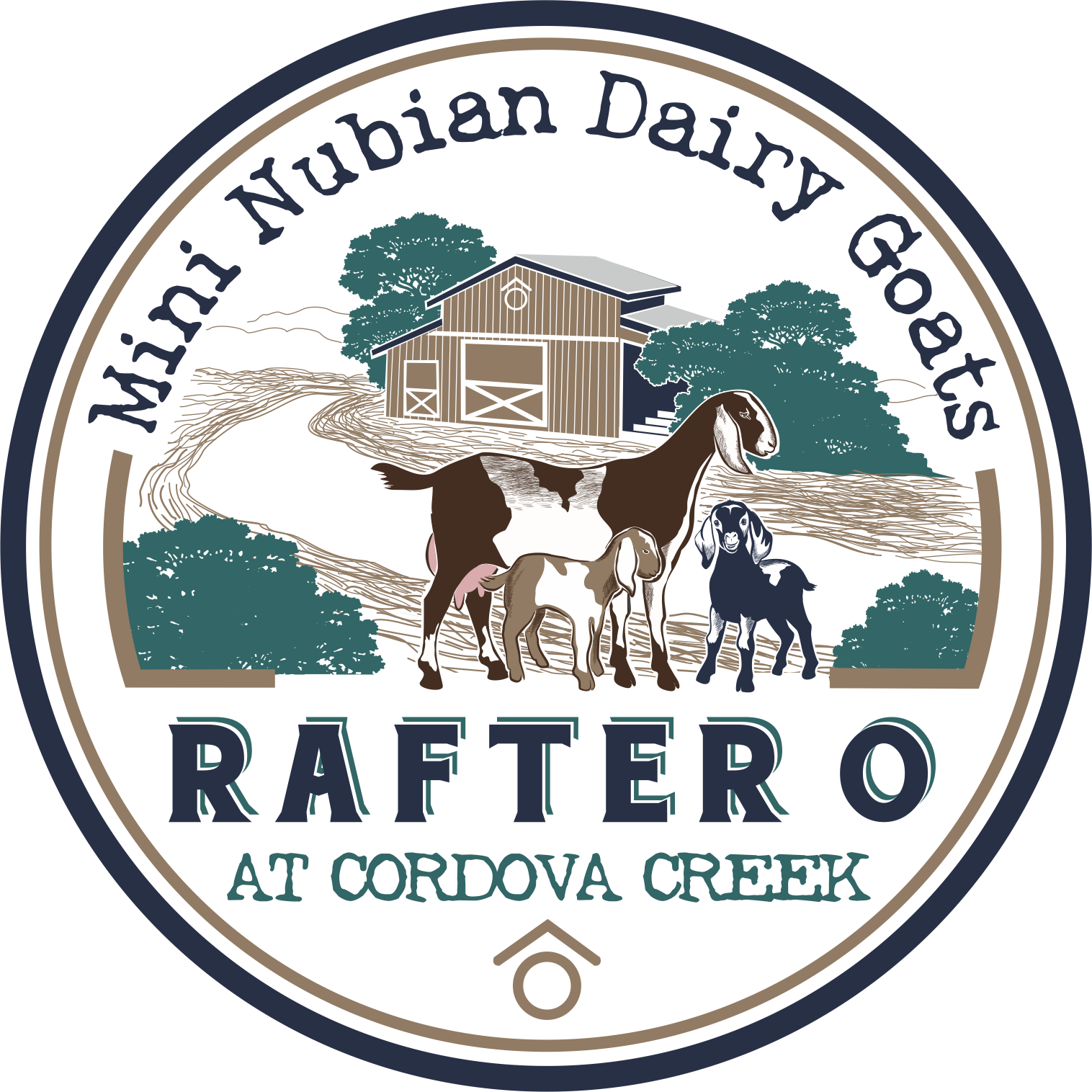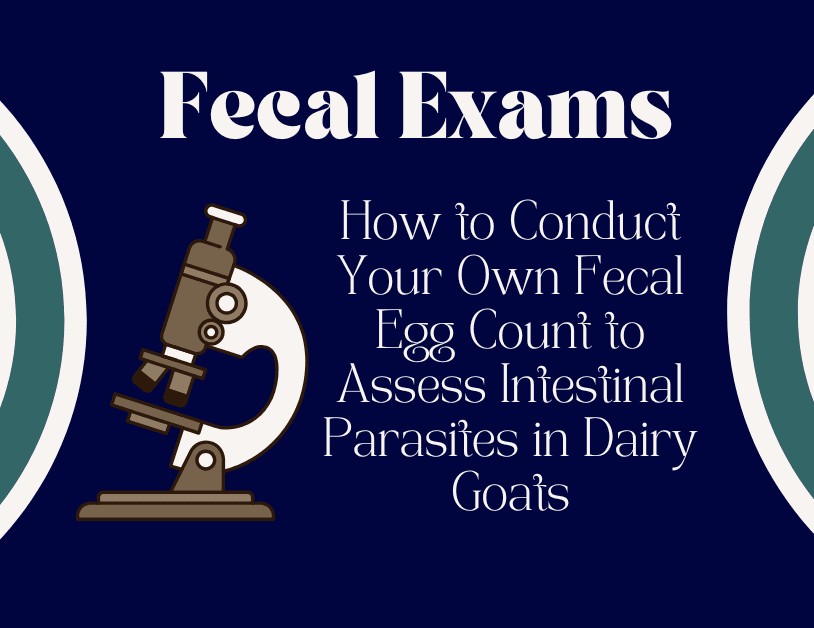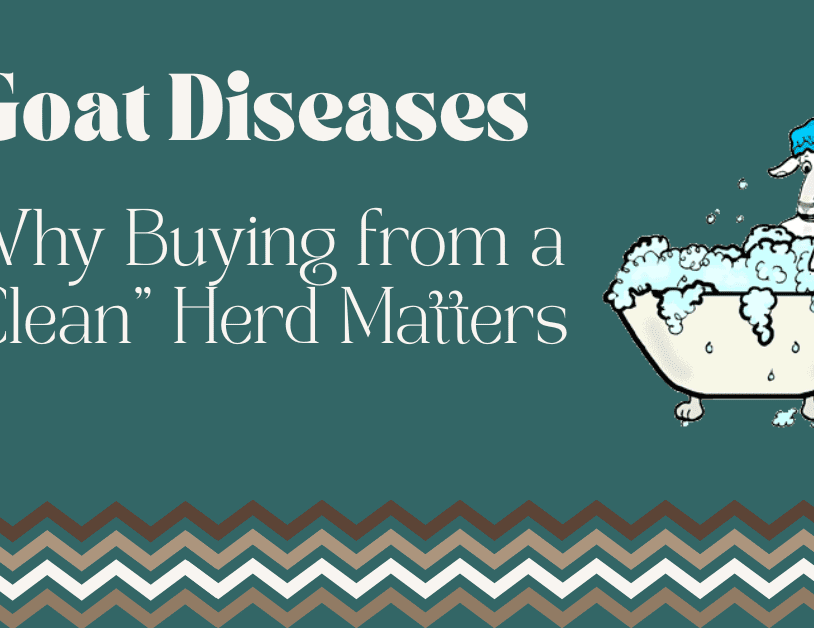Understanding External Parasites in Dairy Goats: What Every Goat Owner Should Know
As dairy goat owners, we’re always looking for ways to keep our herds healthy, happy, and productive. While we often focus on internal parasites like worms, external parasites are just as much of a concern. External parasites, such as lice, mites, ticks, and fleas, can cause a range of issues in dairy goats—from skin irritation to more serious diseases. These pests can interfere with your goats’ health, milk production, and overall well-being. In this blog, we’ll discuss the most common external parasites that affect dairy goats, how to identify them, and how to manage and prevent infestations.
Why Should We Worry About External Parasites?
External parasites can create a lot of discomfort for goats. Not only do they cause physical irritation, but some can transmit diseases that affect your goat’s health. Since goats are sensitive creatures, an external parasite infestation can lead to stress, weight loss, decreased milk production, and overall poor health. Fortunately, with proper care and attention, these pests can be managed effectively.
Let’s take a closer look at the most common external parasites that affect dairy goats.
1. Lice (Biting and Sucking Lice)
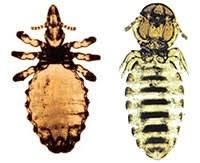
Lice are small, wingless insects that live on the surface of a goat’s skin and feed on their blood or dead skin cells. There are two types of lice that commonly affect goats:
- Biting lice: These lice feed on dead skin and debris, causing itching and irritation. They are generally not as harmful as sucking lice.
- Sucking lice: These lice are blood-suckers and can cause more serious health problems. Heavy infestations of sucking lice can lead to anemia, weight loss, and a weakened immune system.
Signs of lice infestation:
- Intense scratching, rubbing, or licking of the body
- Hair loss or patchy coat
- Sores or scabs from scratching
- Restlessness
Management:
- Topical treatments: Use insecticidal sprays or pour-on treatments designed for goats.
- Clean the environment: Lice can live in bedding and on other surfaces, so be sure to keep the barn and bedding clean. Disinfecting the areas where your goats spend time can help prevent reinfestation.
- Regular grooming: Regularly combing and brushing your goats can help remove lice and monitor for any signs of an infestation.
2. Mites (Scabies or Mange Mites)

Mites are tiny, burrowing creatures that cause intense itching and skin irritation. The most common type of mite affecting goats is sarcoptic mange (caused by Sarcoptes scabiei), which can lead to severe scabbing and hair loss. Mites burrow into the skin, causing inflammation and intense itching.
Signs of mite infestation:
- Severe itching and scratching
- Hair loss, especially on the face, ears, and legs
- Thick, scabby skin lesions
- Skin becoming thickened and crusty
Management:
- Topical treatment: Mites can be treated with specific anti-mite medications such as ivermectin or moxidectin, which are available in pour-on or injectable forms.
- Environment cleaning: Mites can spread through bedding and other areas where goats live, so regular cleaning and disinfection of your goat’s living space is crucial.
3. Ticks
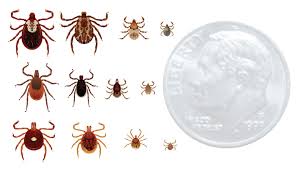
Ticks are not only annoying to your goats, but they can also transmit serious diseases such as Anaplasmosis, Lyme disease, and Q fever. These blood-sucking parasites latch onto goats’ skin and stay there for extended periods of time, feeding on their blood.
Signs of tick infestation:
- Visible ticks attached to your goat’s skin, especially in areas with less hair (e.g., ears, neck, under the legs)
- Skin irritation or inflammation around the tick bites
- Lethargy or weakness if tick-borne diseases are present
Management:
- Tick treatments: Use pour-on or spray insecticides specifically labeled to control ticks on goats.
- Manual removal: Regularly check your goats for ticks and remove any you find using fine-tipped tweezers or tick removers.
- Pasture management: Ticks are often found in tall grasses, so keep your pasture well-maintained by mowing and keeping the grass at a manageable height.
- Preventative medications: Some goat owners use medications that prevent ticks and other parasites, but always consult with your veterinarian for the best options.
4. Fleas
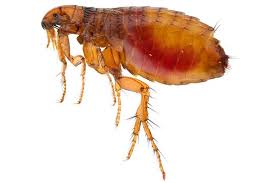
While fleas are more commonly associated with pets like cats and dogs, goats can get fleas as well, especially in areas with heavy insect populations. Fleas can cause itching and irritation, and in some cases, they can transmit tapeworms to goats.
Signs of flea infestation:
- Excessive scratching or biting at the skin
- Hair loss or sores from scratching
- Fleas visible on the goat’s skin
Management:
- Flea treatments: Use flea control products designed for livestock, such as sprays or dusts that are safe for goats.
- Regular grooming: Bathing and brushing your goats can help reduce the risk of flea infestations and remove any fleas present.
- Clean the environment: Fleas can live in bedding and other areas, so thorough cleaning and disinfecting are necessary to prevent fleas from reinfesting your goats.
5. Flies
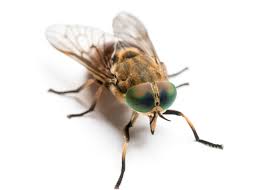
While flies aren’t technically a parasite, they can cause significant irritation to your goats, especially in the warmer months. Flies are attracted to moisture and fecal matter, so they often target goats that have wet bedding or dirty living spaces. They can cause discomfort, and in severe cases, flies may contribute to the development of fly strike, a serious condition where flies lay eggs on open wounds, leading to maggot infestations.
Signs of fly irritation:
- Constant swatting or rubbing at the body
- Reluctance to stay in certain areas (goats trying to avoid fly-heavy zones)
- Wet, messy coats from fly sprays or scratching
Management:
- Fly control products: Use fly sprays, dusts, or pour-on treatments to keep flies at bay. Additionally, you can use fly traps in the barn to reduce the number of flies.
- Cleanliness: Maintaining a clean barn with dry bedding will help deter flies from infesting your goat’s living space.
- Fly masks and covers: In extreme cases, you can use fly masks or protective covers to shield your goats from fly irritation, especially around their faces.
Prevention is Key
The best way to protect your dairy goats from external parasites is through prevention. Regularly inspect your goats for signs of external parasites, keep their environment clean, and provide them with regular grooming and care. Additionally, consult with your veterinarian to ensure you’re using the best treatments and preventative methods for your region and climate.
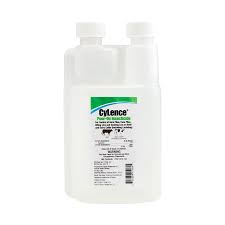
Cylence is a highly effective parasiticidal product that offers several benefits for goat health, particularly when it comes to controlling external parasites like flies and ticks. Here are some of the specific benefits of using Cylence for your goats:
- Effective Fly Control: Cylence provides long-lasting protection against nuisance flies, including horn flies and face flies. These flies can cause irritation, stress, and even transmission of diseases such as pinkeye. By reducing fly populations, Cylence helps keep your goats more comfortable and reduces the risk of fly-borne illnesses.
- Tick Prevention: Ticks can be carriers of diseases like Lyme disease and Q fever. Cylence helps control ticks, reducing the risk of tick-borne diseases and preventing the discomfort caused by tick infestations.
- Long-Lasting Protection: One of the standout features of Cylence is its residual activity. A single application can provide protection for up to 30 days, reducing the need for frequent treatments and giving you peace of mind that your goats are protected for an extended period.
- Easy Application: Cylence is a pour-on product, making it easy to apply directly onto the skin of your goats. This means minimal handling stress for both you and the goats, which is especially important when working with a large herd.
- Safe for Use in Lactating Goats: Cylence is safe to use on lactating goats, so it won’t interfere with milk production. This is particularly important for dairy goat owners who rely on healthy, productive milkers.
- Non-Systemic: Unlike some other treatments, Cylence works topically, meaning it doesn’t enter the goat’s bloodstream. This makes it a safer option for maintaining overall animal health while managing external parasites.
By incorporating Cylence into your goat care routine, you can effectively manage external parasites, improve your goats’ comfort, and reduce the risk of health issues related to fly and tick infestations.
By staying vigilant and proactive in managing external parasites, you can ensure that your goats stay healthy, comfortable, and productive. Keep those pests at bay, and your goats will thank you with healthy coats and increased milk production!
Happy goat-keeping!
